Results
-
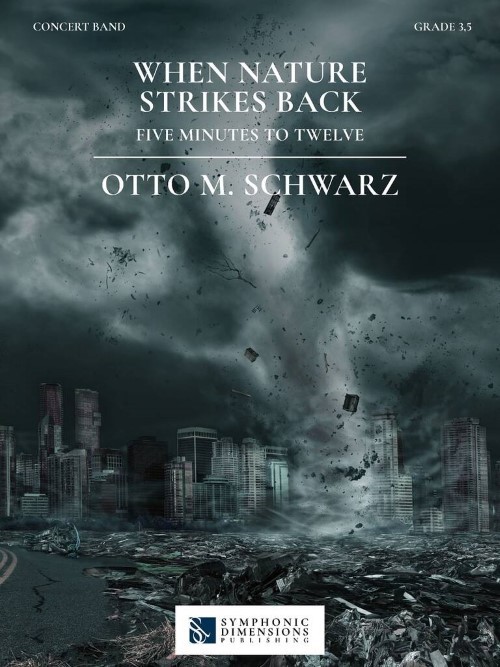 £139.99
£139.99When Nature Strikes Back (Concert Band - Score and Parts) - Schwarz, Otto M.
Ice ages, warm periods, impacts by asteroids - the climate on our planet has always been in a state flux. The difference to the past is that since the industrial revolution, the changes are now also increasingly caused by human activity. The release of greenhouse gases in particular promotes the warming of the atmosphere and the oceans. Some experts even predict an increase of up to 4.8 degrees by the end of the 21st century. The result of such a development, apart from environmental catastrophes that are difficult to predict, would be a gigantic migration of populations. CO2 emissions must be reduced: it is five minutes to twelve. The harbingers of disaster have already reached us.Duration: 8.00
Estimated dispatch 7-14 working days
-
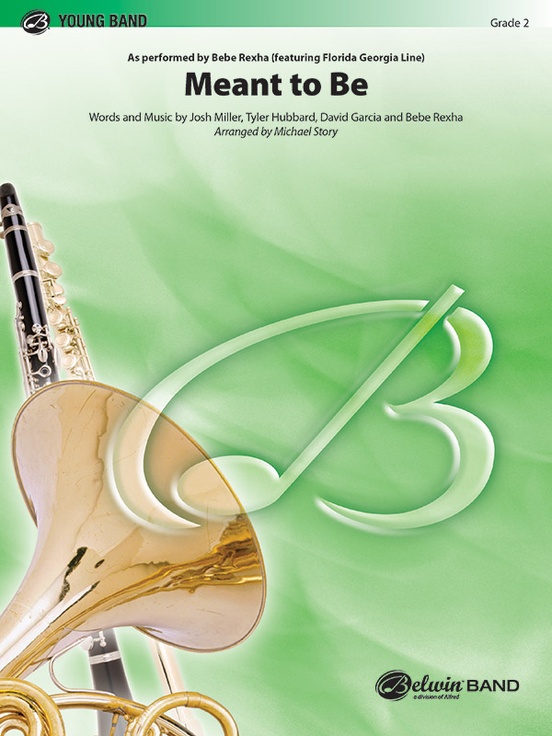 £68.00
£68.00Meant to Be (Concert Band - Score and Parts) - Story, Michael
Pop singer Bebe Rexha teamed up with the country music group Florida Georgia Line to create this number-one hit that crossed numerous pop charts. This arrangement of Meant to Be by Michael Story perfectly captures the feel of the original recording.Duration: 2.00
Estimated dispatch 7-14 working days
-
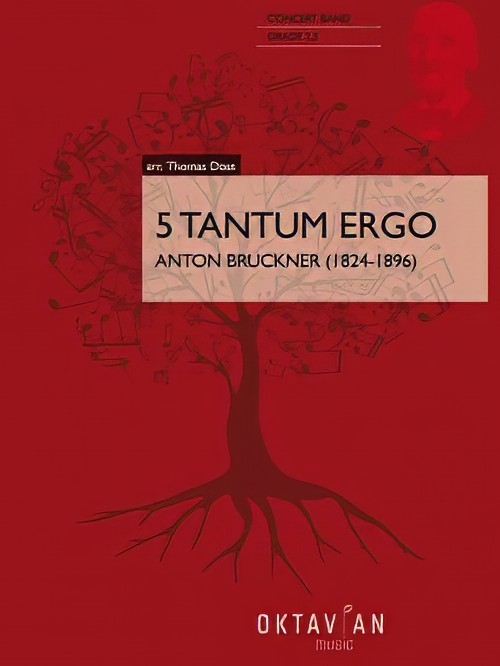 £95.99
£95.995 Tantum Ergo (Concert Band - Score and Parts) - Bruckner, Anton - Doss, Thomas
Anton Bruckner (b. 4.9.1824, Ansfelden, d. 11.10.1896, Vienna) didn't have it easy. Throughout his life, the Austrian composer was plagued by self-doubt. Anton Bruckner came from a simple, rural background. After the death of his father, he was accepted as a choirboy at the monastery of Sankt Florian in 1837. After several years as a school assistant and his own organ and piano studies, he first worked as organist in St. Florian, then from 1855 as cathedral organist in Linz. Introduced to music theory and instrumentation by Simon Sechter and Otto Kitzler, he discovered Richard Wagner as an artistic role model, whom he admired throughout his life and also visited several times in Bayreuth. In 1868 Anton Bruckner became professor of basso continuo, counterpoint and organ at the Vienna Conservatory; ten years later court organist; and in 1891 finally honorary doctor of the University of Vienna. He was considered an important organ virtuoso of his era, but had to wait a long time for recognition as a composer. It was not until Symphony No.7 in E major, composed between 1881 and 1883, with the famous Adagio written under the effects of Wagner's death, that he achieved the recognition he had hoped for, even if he was reluctant to accept it given his inclination towards scepticism and self-criticism. Anton Bruckner was a loner who did not want to follow a particular school or doctrine. He composed numerous sacred vocal works, such as his three masses, the Missa Solemnis in B flat minor (1854), the Te Deum (1881-84) and numerous motets. As a symphonic composer, he wrote a total of nine symphonies and many symphonic studies from 1863 onwards, tending to revise completed versions several times over. Bruckner's orchestral works were long considered unplayable, but in fact were merely exceptionally bold for the tonal language of their time, uniting traditions from Beethoven through Wagner to folk music, on the threshold between late Romanticism and Modernism. Hymns for four-part mixed choir a cappella (1846, St. Florian) No. 1 in E flat major (WAB 41/3): Quite Slow No. 2 in C major (WAB 41/4): Andante No. 3 in B flat major (WAB 41/1): Slow No. 4 in A flat major (WAB 41/2): Slow Hymn for five-part (SSATB) mixed choir and organ No. 5 in D major: Solemnly They are simple works, completely subordinate to their liturgical use, which nevertheless already show numerous characteristics of personal expression. These small pieces were able to stand up to the harsh scrutiny of the mature master: in 1888, Bruckner subjected them to a revision in which he made only minor corrections.Duration: 11.00
Estimated dispatch 7-14 working days
-
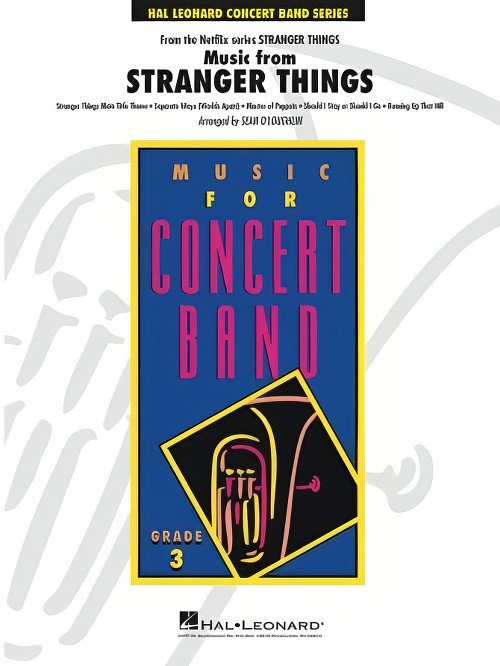 £72.99
£72.99Stranger Things, Music from (Concert Band - Score and Parts) - O'Loughlin, Sean
The popular TV series Stranger Things has reminded us of some of the great songs from the 1980s! With songs supporting key moments in the storyline, here is an emotion-packed medley of classic rock hits along with the iconic theme.Includes:Stranger Things Main ThemeShould I Stay or Should I GoMaster of PuppetsSeparate Ways (Worlds Apart)Running Up That Hill
Estimated dispatch 7-14 working days
-
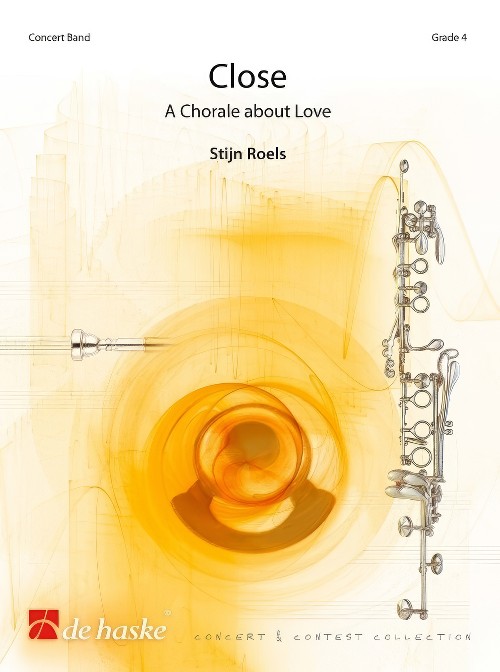 £69.99
£69.99Close (A Chorale about Love) (Concert Band - Score and Parts) - Roels, Stijn
Close is a chorale that sings the praises of a universal theme: love. The people who are dear to you are the ones you'd like to keep as close to you as possible, to make sure you can hug them from time to time. This was not always a matter of course during the past COVID period - an absence which many people felt deeply. The desire for the closeness of love is expressed in a beautiful, lyrical melody supported by warm harmonies. After a quiet opening, the music builds up to a grand climax, and it features tender as well as ardent moments. Perfect to dream away, as well as to dwell on the many aspects that belong to love. Duration: 4.30
Estimated dispatch 7-14 working days
-
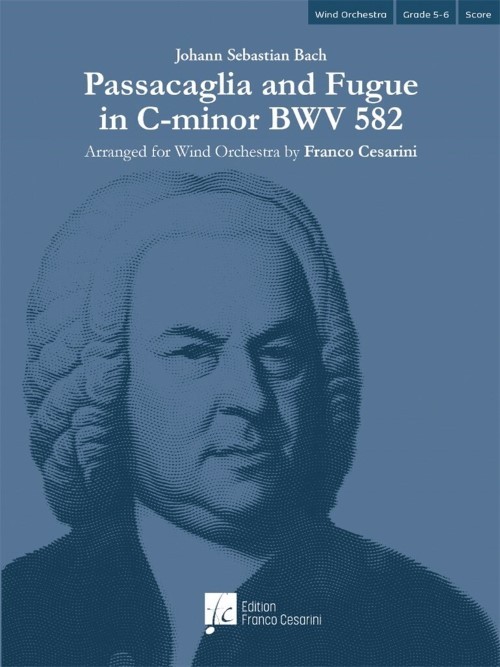 £167.00
£167.00Passacaglia and Fugue in C minor BWV 852 (Concert Band - Score and Parts) - Bach, Johann Sebastian - Cesarini, Franco
The Passacaglia is a set of instrumental variations based on an ostinato bass. Bach's Passacaglia and Fugue in C-minor for organ represents the pinnacle of what had been achieved in this compositional form at that time. In Franco Cesarini's arrangement for large wind orchestra, the particularly careful interpretation of the original piece enables him to exploit all the sound colors at his disposal, and in this sumptuous guise Bach's work also takes on a grandiose dimension, albeit tinged with late-Romanticism. The exposition of the beautiful theme begins in the bass part, immediately creating a solemn and serious atmosphere which is accentuated by the intensely pathetic character of the first variations. Up to the tenth variation it remains confined to the bass, but in subsequent ones it also passes to the soprano and alto register. The integrity of the theme is also embellished with elegant arpeggios, in whose lower and higher extensions the theme can be distinguished. Towards the end it returns to the bass in an impressive thickening of the polyphonic texture that swiftly re-establishes the key of C-minor. The "Thema fugatum" which follows immediately does not constitute a Fugue in its own right, rather it is nothing but the twenty-first and most extensive variation of the Passacaglia. This time Bach uses only the first half of the theme, superimposing a rhythmic countersubject that considerably enlivens the entire development of the composition. The polyphonic discourse becomes increasingly dense, until the building tension peaks in a powerful "Neapolitan sixth" chord, followed by a sudden pause. This culminating moment then leads to the coda and final cadence on a bright C-major chord. Duration: 12.45
Estimated dispatch 7-14 working days
-
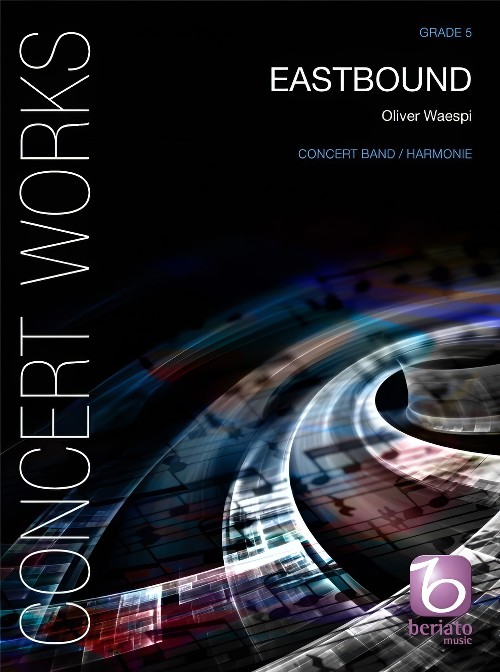 £126.50
£126.50Eastbound (Concert Band - Score and Parts) - Waespi, Oliver
Eastbound was commissioned by the Siena Wind Orchestra of Tokyo and may be heard as a sort of urban exploration. It begins with a massive chordal progression verging into a compact, groove-driven exposition of a relatively basic motif, going on to become increasingly virtuosic and hectic, reflecting the ever-present hustle and bustle in the streets of a megalopolis. The subsequent slower section brings about an Edenic atmosphere. Some soloists are featured with expressive lines, building up towards a short climax with a blues flavour, leading back to the fast music of the beginning. The heavily scored chords of the beginning reappear only towards the ending of the piece, like pillars of the musical bridge spanning the entire piece. Another acceleration finally leads to a turbulent close. Duration: 8.15
Estimated dispatch 7-14 working days
-
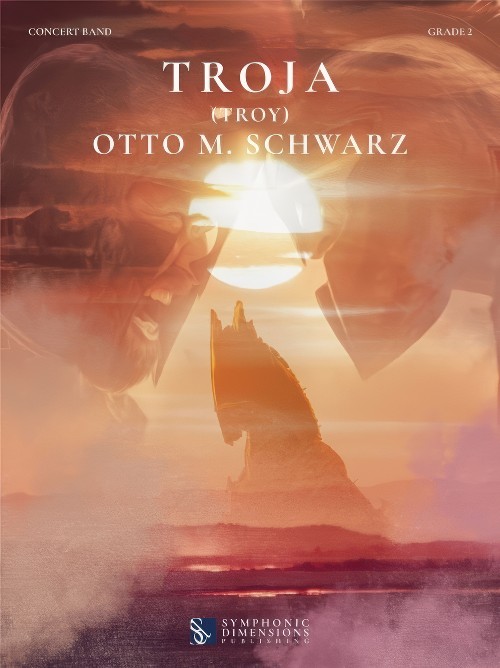 £79.99
£79.99Troja (Troy) (Concert Band - Score and Parts) - Schwarz, Otto M.
The Greek poet Homer wrote about Troy and the Trojan War, which probably took place in what is now Asia Minor, in his Iliad in the 8th century B.C. Nowadays, the term Trojan generally refers to a malware program that is used to gain unauthorised access to computers. This use comes from the legendary Trojan Horse, which saw the turning point in the battle between Greeks and Trojans through the cunning of Odysseus. Let us return to the beginning of the story: Paris, son of the king of Troy, is tasked by Zeus with judging the beauty of the three goddesses Aphrodite, Pallas Athena, and Hera. Aphrodite, the goddess of love, flatters Paris by promising him the most beautiful woman in the world. Soon afterwards, on a journey to Greece, Paris meets the beautiful Helen, who immediately falls in love with him. Since however she is the wife of Spartan king Menelaus, she eventually lets herself be kidnapped by Paris voluntarily. The Greeks then form a large army and go to war against Troy to retrieve Helen, leading to a ten-year siege of the city. The city is eventually conquered not through combat, however, but through Odysseus' cunning ploy. He has the idea of building an enormous wooden horse with warriors hidden inside. The horse is placed at the gates of the city. Thus, the Trojans are tricked into giving up the siege when, despite various warnings, they bring the horse into the city to dedicate it to the goddess Athena. At night, the soldiers climb out of the horse and open the gate for the Greek army. The troops storm the city and burn it to the ground. The royal family and all the Trojan warriors are killed, only Aeneas, the son of Aphrodite, escapes. Later, following many years' wanderings he and his acolytes will become known as the founders of the Roman people. There are various accounts of the fate of the beautiful Helen. She is said to have returned to Sparta with Menelaus and to have ruled there until the end of her life. Or maybe not...Duration: 6.00
Estimated dispatch 7-14 working days
-
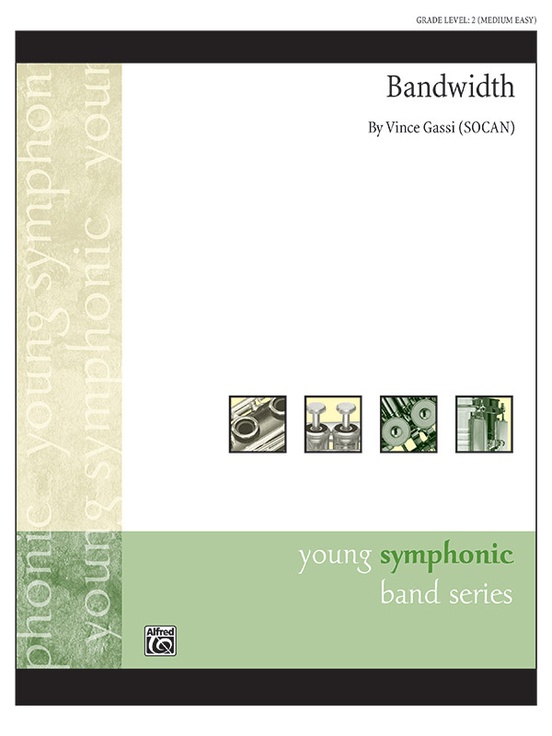 £62.95
£62.95Bandwidth (Concert Band - Score and Parts) - Gassi, Vince
Bandwidth, according to Webster's Dictionary, is the maximum data transfer rate of an electronic communications system. In Bandwidth by Vince Gassi, waves of sound and rhythmic energy (1.21 gigawatts to be exact) are transferred to you and your audiences. Right from the first measure this piece will power on and power you up. Syncopated figures contrast with legato lines while the momentum build throughout. Not too complicated, just fun to play and easy to listen to. Duration: 2.15
Estimated dispatch 7-14 working days
-
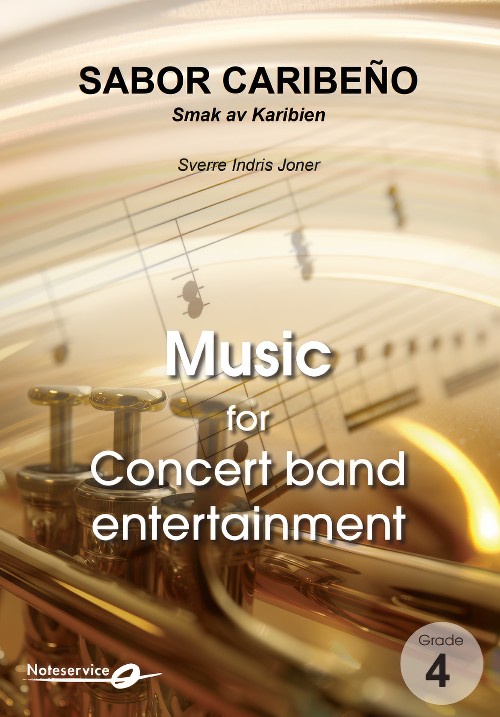 £122.20
£122.20Sabor Caribeno (Concert Band - Score and Parts) - Joner, Sverre Indris
Sabor Caribeno means Taste of Caribbean . This original composition is written by Norwegian composer Sverre Indris Joner who has studied Caribbean music since mid-80s.The music presents traditional elements from Cuban and Puerto Rico. Polyrhythmic is an important part of the music which consist of up to four melody lines at the same time.
Estimated dispatch 7-14 working days
